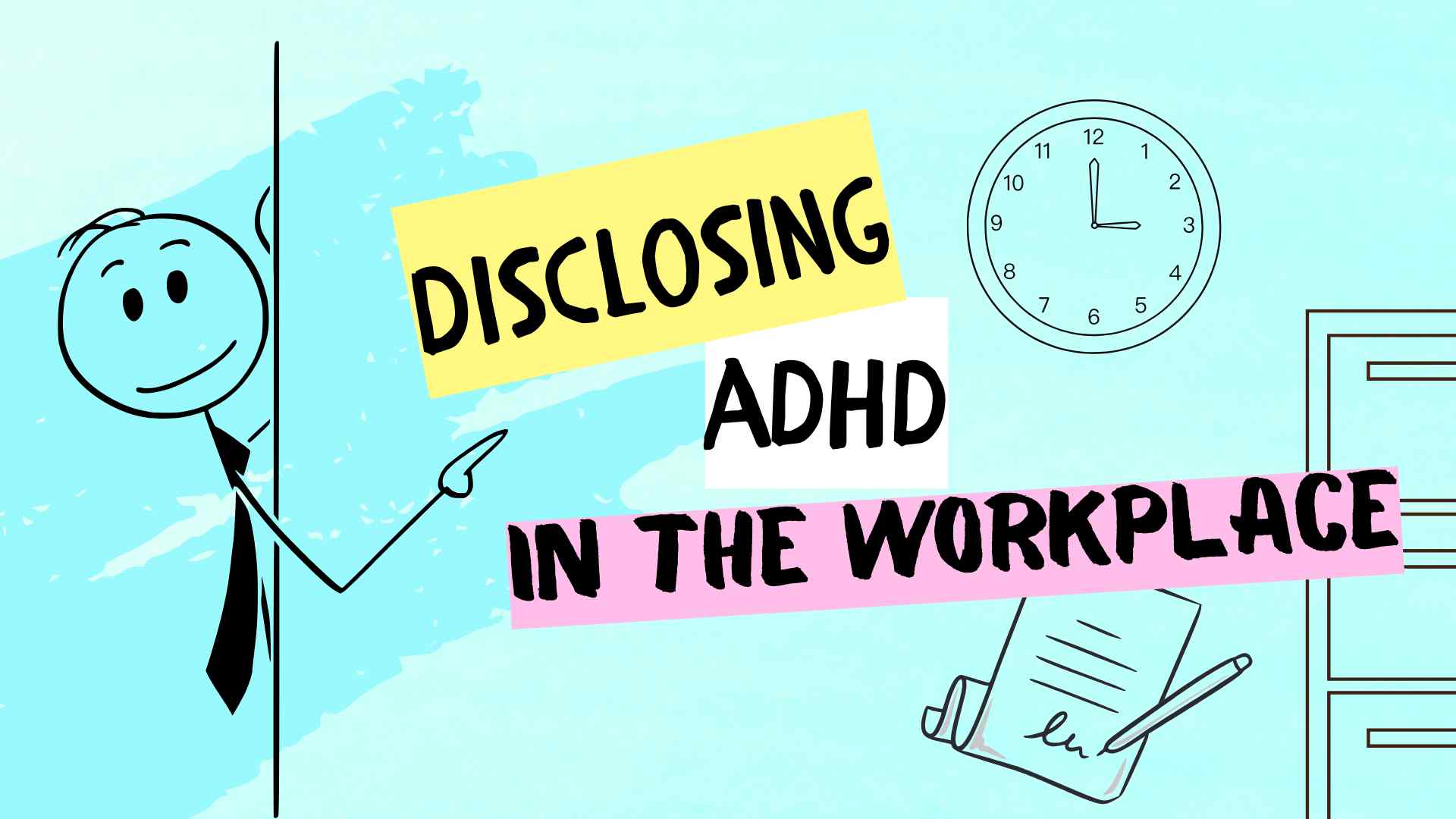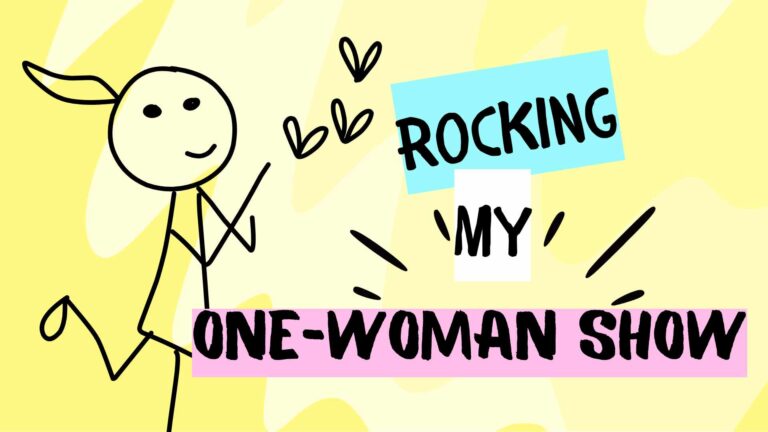Disclosing ADHD in the Workplace

Deciding when to disclose ADHD in the workplace is a deeply personal choice, and it depends on several factors.
Sometimes, persons can manage their challenges privately. On other occasions, staff need more support. In this case, it’s to the person’s benefit to share their struggles and what they need to succeed, especially to prevent misunderstandings.
Let’s be clear – you’re not alone in your challenges. Anyone of your coworkers is going to bring unknowns into the workplace. Overtime, we get to know what makes them tick, and what their needs are to be a better team member.
Everyone wants a coworker who pulls their weight and contributes to the whole. Self-care makes you that better team member!
Table of Contents
- When Disclosure Might Be Beneficial
- When You Might Want to Wait
- How to Approach Disclosure
- Conclusion
When Disclosure Might Be Beneficial
- If ADHD is impacting job performance – If symptoms like difficulty with focus, organization, or time management are affecting your ability to meet expectations, disclosure may help you access accommodations.
- If you need workplace adjustments – Employers are required to provide reasonable accommodations under the Americans with Disabilities Act (ADA), but they can only do so if they’re aware of your condition.
- If your workplace is supportive – Some companies have strong neurodiversity initiatives and may actively encourage employees to disclose ADHD to foster a more inclusive environment.
When You Might Want to Wait
- If you’re unsure about company culture – If your workplace has a history of stigma or lacks awareness about ADHD, disclosure could lead to misunderstandings or bias.
- If your symptoms are manageable without accommodations – Some ADHDers find ways to work around their challenges without needing formal adjustments, making disclosure unnecessary.
- If you’re concerned about career progression – Unfortunately, some employees worry that disclosure could affect promotions or how they’re perceived by colleagues.
Don’t miss my article about the pros and cons of hiding ADHD.
How to Approach Disclosure
SaveTimeShan on YouTube gives a nice demo of a two-way conversation between boss and employee. She doesn’t even come out and say she has ADHD, she just talks in a very broad sense of what she needs to be successful, and then proposes to her boss if it’s possible to accomodate.
Remember, you don’t want to lead with ADHD as a crutch or excuse. Actually, it’s good marketing – you’re telling your boss what you can do for them when you’re more productive.
- Frame it positively – Instead of focusing on challenges, highlight strengths like creativity, problem-solving, and hyperfocus.
- Discuss accommodations, not just diagnosis – Employers don’t need to know every detail about ADHD, but they do need to understand what adjustments will help you succeed.
- Know your rights – The ADA protects employees with ADHD, ensuring they receive reasonable accommodations without discrimination.
Talking to your employer about ADHD accommodations can feel daunting, but with the right approach, it can be a productive and empowering conversation. Here are some examples of how you might frame the discussion:
1. Initial Conversation: Requesting Accommodations
Employee: “I wanted to talk to you about some challenges I’ve been facing at work due to ADHD. I’ve been researching workplace accommodations, and I believe a few adjustments could help me be more productive and efficient. Would you be open to discussing some options?”
Employer: “Of course! I appreciate you bringing this up. What kind of accommodations do you think would be helpful?”
Employee: “I find that minimizing distractions really helps me focus. A quieter workspace or noise-canceling headphones could make a big difference. Also, breaking larger tasks into smaller steps with clear deadlines would help me stay on track.”
2. Explaining Specific Needs
Employee: “One of the biggest challenges I face is time management. I sometimes struggle with prioritizing tasks and meeting deadlines. Would it be possible to have structured check-ins or reminders to help keep me on track?”
Employer: “That makes sense. We could set up weekly check-ins to review progress and adjust priorities as needed. Would that work for you?”
Employee: “Yes, that would be really helpful! Also, having written instructions for complex tasks would ensure I don’t miss any details.”
3. Addressing Sensory Overload
Employee: “I’ve noticed that working in a noisy environment makes it harder for me to concentrate. Would it be possible to work in a quieter space or have designated focus hours?”
Employer: “We can look into that. Maybe we can arrange for you to use a conference room during certain hours or provide noise-canceling headphones.”
Employee: “That would be great! I really appreciate your willingness to work with me on this.”
4. Following Up on Accommodations
Employee: “I wanted to check in and see how the accommodations are working. The structured check-ins have been really helpful, but I think I might need additional support with organizing tasks. Could we explore using a project management tool?”
Employer: “Absolutely! Let’s look into some options that could help streamline your workflow.”
Conclusion
Your employer or supervisor wants you to be successful. This can only happen if you meet them halfway. If you’re still on the fence about disclosing, there are certainly compromises.
It doesn’t matter if you disclose or not, you still need to discover what your needs are. By experimenting with hacks your brain accepts, you are well on your way to on-the-job success.
#inthistogether -Renee




